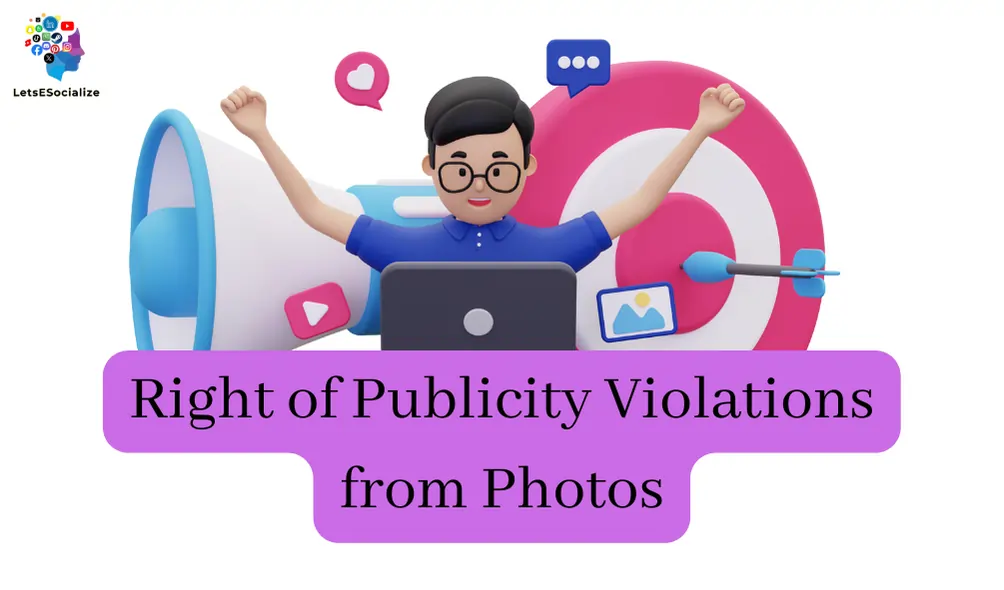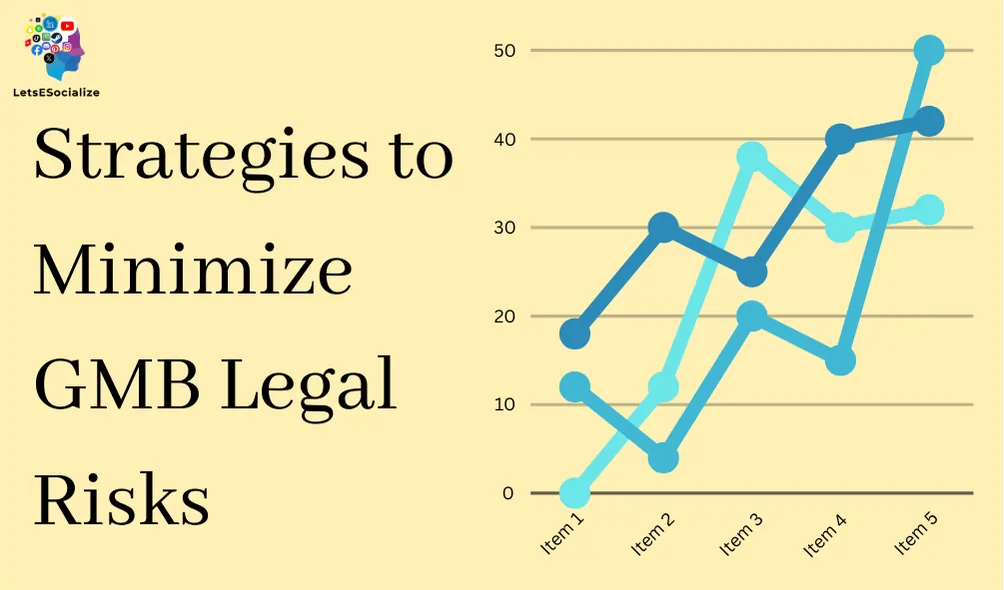Google My Business listings have become vital online real estate for local businesses. But with this importance also comes legal risks surrounding ownership disputes, trademark violations, defamation, and other issues.
Table of Contents
GMB Listing Ownership Disputes

GMB listing ownership disputes can be frustrating and complex, but luckily there are options for resolving them. Here’s a breakdown of potential scenarios and how to address them:
Duplicate Listings:
- Check internally: If another listing exists with similar information, confirm it’s not created within your organization (franchisees, agencies, etc.).
- Request access: If it’s a duplicate, you can request ownership through the Business Profile dashboard. Provide evidence supporting your claim (business documents, website ownership, etc.).
- Report the listing: If attempts to gain access fail, report the duplicate listing to Google using the Business Redressal Complaint Form.
Former Owner/Manager:
- Direct communication: Try contacting the former owner or manager directly to request a transfer of ownership.
- Request access: If communication fails, use the “Request access” option in the Business Profile dashboard. Briefly explain the situation and provide ownership verification documents.
- Dispute claim: If the access request is denied, file a dispute with Google, providing a detailed explanation and ownership evidence.
Unaware Current Owner:
- Gather information: Research the current owner, possibly through public records or online presence.
- Direct communication: Attempt to contact the owner directly, explaining the situation and requesting ownership transfer.
- Legal route: If attempts fail, consider legal action for trademark infringement or impersonation, especially for businesses with strong intellectual property rights.
General Tips:
- Evidence is key: Gather documents like utility bills, business licenses, or website ownership proof to support your claim.
- Be patient: Ownership disputes can take time to resolve. Follow up with Google and provide additional information if needed.
- Seek help: Consider consulting a GMB expert or lawyer for complex situations or legal guidance.
Additional Resources:
- Google My Business Help Center: https://support.google.com/business/?hl=en: https://support.google.com/business/?hl=en
- Business Redressal Complaint Form: https://support.google.com/websearch/answer/6223687?hl=en&co=GENIE.Platform%3DAndroid: https://support.google.com/websearch/answer/6223687?hl=en&co=GENIE.Platform%3DAndroid
- Resolve owner conflicts: <invalid URL removed>: <invalid URL removed>
Remember, the most important thing is to document your claim thoroughly and communicate clearly with Google and other involved parties. If you have a strong case and present it effectively, you should be able to resolve the ownership dispute and regain control of your GMB listing.
Also Read – Success Stories of Google My Business 2024
Also Read – Google My Business and Spam/Fraud 2024
Trademark Infringement Allegations

Trademark infringement on GMB listings can be a serious issue, impacting both the trademark owner and potential customers. If you find yourself facing a trademark infringement allegation on your GMB listing, here are steps you can take:
Understanding the Accusation:
- Review the claim: Identify the specific trademark allegedly infringed and understand the basis for the accusation.
- Assess your use: Determine if your business name, logo, or description genuinely utilizes a protected trademark without permission.
- Gather evidence: Organize documentation supporting your claim, such as trademark registration certificates, business licenses, or proof of prior use.
Responding to the Claim:
- Contact the accuser: Attempt direct communication to understand their concerns and explore potential solutions like amending your listing.
- Remove infringing content: If you acknowledge an infringement, promptly remove the offending elements from your GMB listing.
- File a counter-notification: If you believe the accusation is inaccurate, file a formal counter-notification with Google, providing evidence to support your claim.
Seeking Professional Help:
- Consult a lawyer: Consider seeking legal guidance, especially for complex situations or when dealing with established trademarks.
- GMB experts: GMB management services can offer assistance with navigating the process and complying with Google’s policies.
Additional Tips:
- Be transparent and responsive: Open communication and prompt action demonstrate good faith and cooperation.
- Maintain accurate information: Ensure your GMB listing accurately reflects your business and doesn’t mislead customers.
- Educate yourself: Familiarize yourself with trademark laws and best practices to avoid future infringements.
Resources:
- Google My Business Help Center: https://support.google.com/business/?hl=en: https://support.google.com/business/?hl=en
- Report Trademark Infringement: <invalid URL removed>: <invalid URL removed>
- United States Patent and Trademark Office (USPTO): https://www.uspto.gov: https://www.uspto.gov
- World Intellectual Property Organization (WIPO): https://www.wipo.int: https://www.wipo.int
Remember, addressing trademark infringement allegations promptly and responsibly is crucial. By understanding the process, taking appropriate action, and potentially seeking professional guidance, you can minimize the impact and maintain a positive online presence for your business.
Defamation Claims Related to Reviews

Dealing with defamation claims related to reviews on your GMB listing can be a complex and sensitive matter. Here’s an overview of the situation and potential steps you can take:
Understanding Defamation:
- Defamation involves a false statement published to a third party that damages someone’s reputation.
- Reviews, positive or negative, are generally considered opinions protected by free speech.
- However, malicious reviews containing demonstrably false statements can cross the line into defamation.
Assessing the Review:
- Carefully analyze the review to identify any specific, factual statements that could be perceived as defamatory.
- Consider if the statements can be demonstrably proven false with evidence (e.g., receipts, invoices, witness accounts).
- Evaluate the severity of the alleged damage to your reputation caused by the review.
Potential Courses of Action:
- Engage with the reviewer: If appropriate, attempt to contact the reviewer privately to address the concerns and potentially resolve the issue amicably.
- Flag the review for removal: Report the review to Google if it violates Google’s review policies, highlighting the potentially defamatory content.
- Respond publicly: If the review remains and you choose to address it publicly, do so professionally and factually, without engaging in personal attacks.
- Seek legal advice: Consult with a lawyer specializing in defamation and online reputation management to discuss potential legal options and evaluate the strength of your case.
Important Considerations:
- Legal action for defamation can be expensive and time-consuming, with success depending on various factors.
- Engaging in public arguments with the reviewer may attract more attention and potentially backfire.
- Focusing on removing demonstrably false information and showcasing positive reviews through active engagement can often be a more effective long-term strategy.
Additional Resources:
- Google My Business Help Center: https://support.google.com/business/?hl=en: https://support.google.com/business/?hl=en
- Report a review: https://support.google.com/business/answer/3474122?hl=en: https://support.google.com/business/answer/3474122?hl=en
- Find a lawyer: <invalid URL removed>: <invalid URL removed>
Remember, navigating defamation claims requires careful consideration and potential legal expertise. While protecting your reputation is important, acting cautiously and strategically is crucial to avoiding further complications.
Right of Publicity Violations from Photos

The right of publicity protects individuals from the unauthorized use of their name, image, or likeness for commercial purposes. In the context of GMB listings, using photos that violate someone’s right to publicity can lead to legal issues. Here’s what you need to know:
Understanding the Issue:
- Any photo used on your GMB listing, including customer photos, employees, or even yourself, requires consent from the individuals depicted.
- Using photos without consent, even if unintentional, can constitute a violation of their right to publicity.
- This applies even if the photo captures someone in a public space unless it’s considered newsworthy.
Identifying Potential Violations:
- Be mindful of photos from customer reviews, especially those showcasing identifiable individuals.
- Avoid using employee photos without explicit permission, even if for promotional purposes.
- Pay attention to the background of your photos; ensure no identifiable individuals are unintentionally captured.
Addressing Violations:
- Remove potentially infringing photos: If you suspect a photo might violate someone’s right of publicity, remove it immediately.
- Obtain consent: If you intend to use a specific photo, seek written consent from the individual(s) depicted.
- Use stock photos or royalty-free images: These offer safe alternatives with clear licensing terms.
Additional Tips:
- Implement a policy for collecting and using photos on your GMB listing, ensuring informed consent and proper attribution.
- Consider consulting with a legal professional if you have questions about specific photos or potential risks.
Remember:
- Respecting individuals’ right to publicity is crucial for avoiding legal trouble and maintaining a positive online presence.
- By being proactive and following best practices, you can ensure your GMB listing showcases your business ethically and responsibly.
Resources:
- Google My Business Help Center: https://support.google.com/business/?hl=en: https://support.google.com/business/?hl=en
- Right of Publicity: <invalid URL removed>: <invalid URL removed>
- Find a lawyer: <invalid URL removed>: <invalid URL removed>
By understanding the potential implications and taking necessary precautions, you can avoid issues related to the right of publicity on your GMB listing and protect both your business and the individuals involved.
Issues Around Competition and Advertising Laws

Navigating the intersection of Google My Business (GMB) listings, competition, and advertising laws can be tricky. Here’s a breakdown of some key issues to be aware of:
Misleading Claims and Comparisons:
- Avoid making false or unsubstantiated claims: Don’t exaggerate your services, disparage competitors, or make misleading comparisons without factual backing.
- Be transparent about pricing and promotions: Ensure advertised prices and offers are accurate and communicated.
- Stay clear of deceptive practices: Avoid tactics like fake reviews, keyword stuffing, or manipulating listing information to mislead customers.
Complying with Local Advertising Regulations:
- Research local advertising laws: Be aware of specific regulations in your area that might apply to online advertising and GMB listings.
- Avoid prohibited claims: Certain industries or professions may have restrictions on advertising content, like medical claims or financial services.
- Stay mindful of comparative advertising: If engaging in comparisons, ensure they are fair, accurate, and not misleading.
GMB Specific Guidelines:
- Adhere to Google’s My Business policies: Review and follow Google’s guidelines for GMB listings, which prohibit false or misleading information, deceptive practices, and unauthorized use of trademarks.
- Avoid keyword stuffing: Don’t overload your listing descriptions with irrelevant keywords to manipulate search results.
- Stay authentic: Focus on genuine information and positive customer experiences rather than exaggerated claims or aggressive marketing tactics.
Consequences of Non-Compliance:
- Negative impact on reputation: Violating competition or advertising laws can damage your business’s reputation and trust with customers.
- Potential legal action: Regulatory bodies or competitors may take legal action for false advertising or unfair competition practices.
- GMB listing suspension or removal: Google may suspend or remove your GMB listing for violating their policies.
Tips for Maintaining Compliance:
- Consult legal counsel: If unsure about specific advertising claims or practices, seek advice from a lawyer specializing in competition and advertising law.
- Stay informed: Keep up-to-date with relevant regulations and changes in GMB policies.
- Prioritize transparency and authenticity: Focus on providing accurate information and building trust with genuine customer engagement.
Remember:
Understanding and complying with competition and advertising laws is crucial for responsible online marketing and protecting your business from legal or reputational risks. By prioritizing ethical practices and transparency, you can leverage GMB effectively while maintaining a positive online presence.
Additional Resources:
- Google My Business Help Center: https://support.google.com/business/?hl=en: https://support.google.com/business/?hl=en
- Federal Trade Commission (FTC) Advertising Rules: <invalid URL removed>: <invalid URL removed>
- Better Business Bureau (BBB): https://www.bbb.org: https://www.bbb.org
By utilizing these resources and staying informed, you can navigate the competitive landscape of online advertising ethically and effectively.
Applicable Laws and Google Policies

Unfortunately, your question is quite broad, and the applicable laws and Google policies will vary depending on several factors, including:
- Your location: Different countries and regions have their laws and regulations governing advertising, data privacy, intellectual property, and other relevant areas.
- Your industry: Certain industries, like healthcare or finance, may have additional regulations specific to their online presence.
- Your specific actions: The laws and policies that apply will depend on your specific actions related to Google My Business (GMB), such as listing content, user-generated reviews, and promotional activities.
Therefore, I cannot provide a definitive answer without more information. However, I can guide you in the right direction:
Start by identifying the key areas of concern:
- Advertising and Competition: If you are concerned about the competitive landscape and advertising practices related to your GMB listing, consider researching your local advertising regulations and Google’s Advertising Policies (https://support.google.com/adspolicy/answer/6008942?hl=en).
- Data Privacy and User Content: If you have questions about handling user-generated content like reviews or photos on your GMB listing, explore Google’s My Business policies (https://support.google.com/business/answer/9292476?hl=en) and data privacy policies (https://policies.google.com/privacy?hl=en-US).
- Intellectual Property: If you are concerned about trademark infringement or other intellectual property issues related to your GMB listing, consider consulting your local intellectual property laws and Google’s Intellectual Property Rights policies (https://support.google.com/publisherpolicies/answer/10402772?hl=en).
Additional Resources:
- Google My Business Help Center: https://support.google.com/business/?hl=en
- Google Legal Department: https://policies.google.com/privacy?hl=en-US
- Find a lawyer: Consider consulting with a lawyer specializing in the relevant legal area (e.g., advertising law, intellectual property law) for more specific advice based on your unique situation.
By providing more details about your specific concerns and location, I can offer more targeted guidance on the applicable laws and Google policies.

Unfortunately, the potential liability your business faces due to Google My Business (GMB) activity depends on several factors, making it impossible to provide a definitive answer without more context. However, I can offer you some general insights and key areas to consider:
Potential areas of liability:
- Content on your listing:
- Misleading information: False or misleading information about your business, including services, prices, or qualifications, could lead to consumer protection claims or regulatory action.
- Copyright or trademark infringement: Using protected content like images or logos without permission could result in legal action.
- Defamation: Negative statements about competitors or individuals could lead to defamation lawsuits.
- User-generated content:
- Negative reviews: While you can’t control all reviews, failing to address serious or defamatory ones could harm your reputation.
- Fake reviews: If you knowingly encourage or purchase fake reviews, it could violate Google’s policies and potentially lead to legal repercussions.
- Data privacy:
- Mishandling customer data: Breaches or improper use of customer data collected through GMB could violate privacy laws and regulations.
Mitigating the risks:
- Maintaining accurate and truthful information: Regularly review and update your listing to ensure it reflects your current business practices.
- Respecting intellectual property: Obtain permission before using any copyrighted or trademarked materials.
- Responding to negative reviews: Address concerns promptly and professionally.
- Avoiding fake reviews: Don’t incentivize or purchase fake reviews, as it violates Google’s policies and could damage your reputation.
- Complying with data privacy laws: Implement appropriate data security measures and transparent privacy policies.
Additional factors:
- Your industry: Certain industries like healthcare or finance may have stricter regulations regarding online content and data privacy.
- Your location: Different countries and regions have varying laws and regulations related to advertising, data privacy, and intellectual property.
Disclaimer:
It’s important to understand that this information is not a substitute for legal advice. For specific guidance based on your unique situation and potential risks, it’s crucial to consult with a qualified legal professional who specializes in online business liability and relevant regulations.
By taking proactive steps to manage your GMB listing responsibly and complying with relevant laws and regulations, you can minimize the potential for liability and protect your business.
Strategies to Minimize GMB Legal Risks

Managing your Google My Business (GMB) listing effectively can be a powerful tool for attracting customers, but it also comes with certain legal risks. Here are some key strategies to minimize those risks:
Content Management:
- Accuracy and Transparency: Ensure all information on your listing, including descriptions, contact details, and service offerings, are accurate, up-to-date, and truthful. Misleading or deceptive information can lead to consumer protection claims or regulatory action.
- Intellectual Property: Only use content you own or have permission to use, like images, logos, and videos. Respecting trademarks and copyrights is crucial to avoid legal issues.
- Defamation: Avoid making negative or defamatory statements about competitors or individuals in your listing content or responses to reviews.
- Review Responses: Address negative reviews promptly and professionally, focusing on resolving the issue rather than engaging in arguments. Flag reviews that violate Google’s policies for removal.
User-Generated Content:
- Monitoring: Regularly review your listing for new reviews and photos.
- Removal: Report fake, offensive, or harmful reviews to Google for removal.
- Response Policy: Develop a clear policy for responding to user-generated content, ensuring respectful and professional communication.
Data Privacy:
- Privacy Policy: Have a clear and transparent privacy policy explaining how you collect, use, and share customer data from your GMB listing.
- Compliance: Ensure you comply with data privacy regulations like GDPR and CCPA, particularly regarding obtaining consent for data collection and respecting user rights.
- Security: Implement appropriate security measures to protect customer data from unauthorized access or breaches.
Additional Steps:
- Stay Informed: Regularly review and update your understanding of Google’s My Business policies and relevant legal regulations.
- Seek Professional Help: If you’re unsure about any aspect of GMB legal compliance, consult with a lawyer specializing in online business and advertising law.
- Promote Ethical Practices: Implement internal policies and training programs to ensure ethical and responsible use of GMB within your organization.
Remember:
- Proactive management and vigilance are key to minimizing GMB legal risks.
- Building trust and transparency with customers and respecting user rights are vital aspects of responsible online presence.
- Consulting with legal professionals can provide specific guidance based on your business and location.
By following these strategies and staying informed, you can enjoy the benefits of GMB while minimizing potential legal issues and protecting your business reputation.
Also Read – Google My Business and User-Generated Content 2024
Also Read – Google My Business and Service Area Businesses 2024
Conclusion
Google My Business accounts come with legal hazards surrounding trademark violations, defamation, right of publicity, false advertising, and more. With vigilance, common sense practices, and prompt action when issues arise, you can steer clear of unnecessary legal headaches. Now you know the common risks, applicable laws, and liability potentials, and have best practice tips to keep your GMB presence out of court and in compliance. Stay informed and thoughtful in your local listing management!







